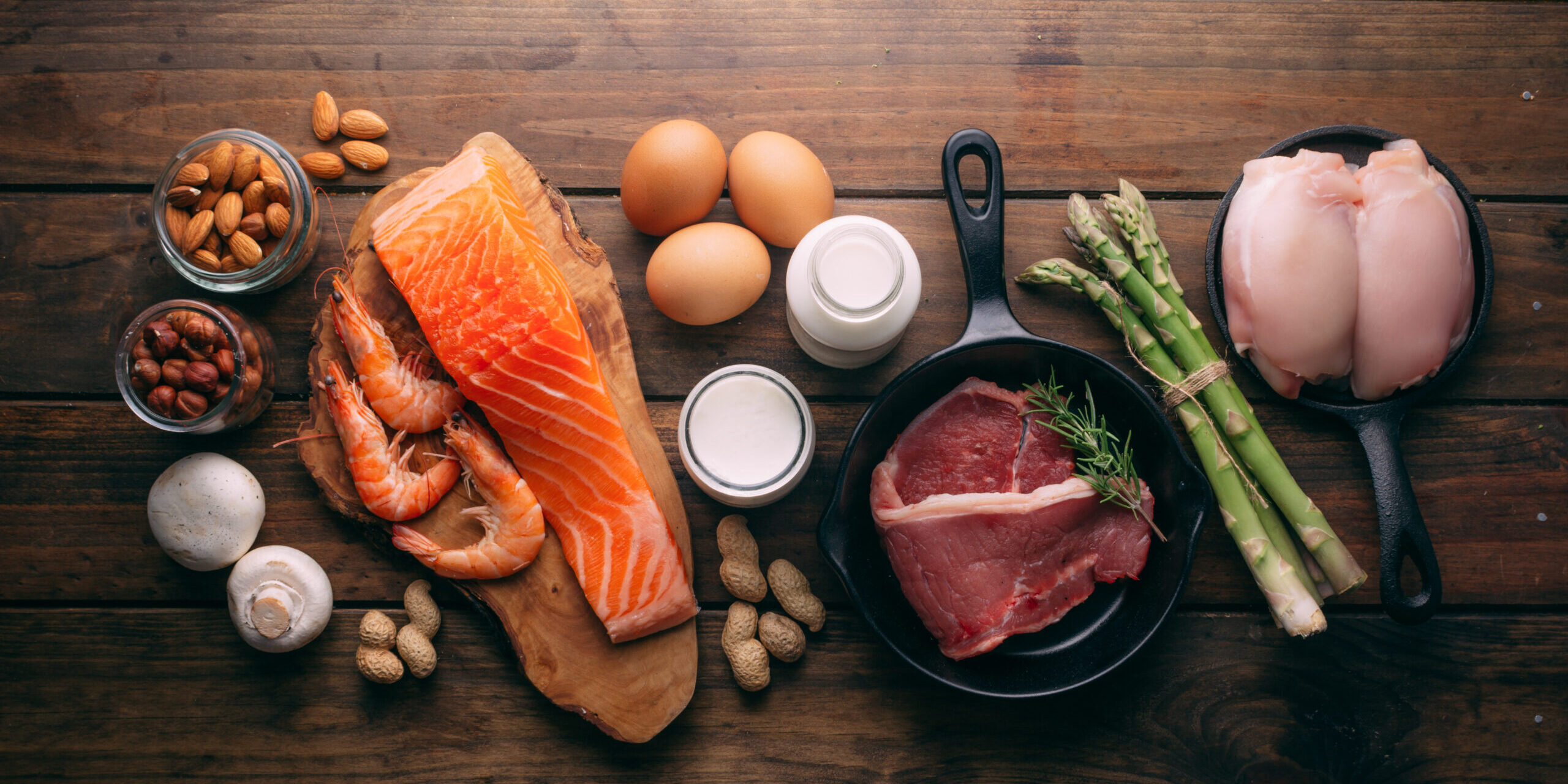By Helaine Krasner, RD, CDN
What: Protein is an essential nutrient, which means we must consume enough of it in order to perform important body functions. Our body is continuously working to repair and replenish our cells, and we need protein to get the job done. Protein is a major component of our bones, muscles, cartilage, hair, skin, blood as well as hormones and enzymes. Individual needs depend on age, gender, and activity level. On average, women should consume at least 46 grams daily, and men should consume at least 56 grams. Consuming more protein while losing weight may help preserve lean muscle. Clinical guidelines recommend 60-80 grams daily after bariatric surgery.
Why: While many people consume more protein than they need, others are not consuming enough. Problems associated with inadequate protein intake include loss of muscle mass (called sarcopenia), thinning hair, weakened immunity, and fatigue. In addition, including protein foods in meals and snacks helps keep blood sugar more stable and promotes satiety.
Where: The best sources of protein are animal products including meats, poultry, fish, eggs, and low fat dairy, because they contain all the essential amino acids, or building blocks, needed to create all necessary body proteins. The only plant based protein that also qualifies is soy. Protein is also found in vegetables, grains, nuts, and seeds, but a larger amount and variety is needed to obtain all the essential amino acids.
When: It’s best to consume protein throughout the day and include a good protein source in each meal. Consider adding protein foods to snacks to help you reach your goal. Some studies show starting your day with a high protein breakfast helps control hunger later in the day.
How: Fill one-quarter to one-third of your plate with protein. Select lean meats to reduce saturated fat intake, and avoid processed and fried meats to reduce risks of heart disease, cancer, and obesity. A 3 oz serving is about the size of a deck of cards. Try to include a protein food in your snack. Consider a low sugar Greek yogurt, low fat cheese stick, or a handful of almonds. Protein shakes or bars can sub in for a quick meal or snack when you’re on the run.
Foods with estimated grams of protein provided per serving:
| Food | Serving Size | Protein (grams) |
| Skinless chicken or turkey breast | 3 oz | 26 |
| Lean beef or pork | 3 oz | 22 |
| Salmon or tuna | 3 oz | 22 |
| Greek yogurt, plain | 6 oz | 18 |
| Cottage cheese, low fat | 4 oz | 14 |
| Tofu, firm | ½ cup of ½” cubes | 10 |
| Milk, 1% | 8 oz | 8 |
| Yogurt, plain | 6 oz | 8 |
| Egg, extra large | 1 | 7 |
| Almonds | 1 oz | 6 |
For more information on protein and other important nutrients visit Choosemyplate.gov
Helaine is a Registered Dietitian Nutritionist who takes great pride in helping our Bariatric and Medical Weight Management patients achieve their health and weight loss goals.

